10 major sleep myths you can ignore, thanks to science
It’s time to listen to the science, not the sleep myths.
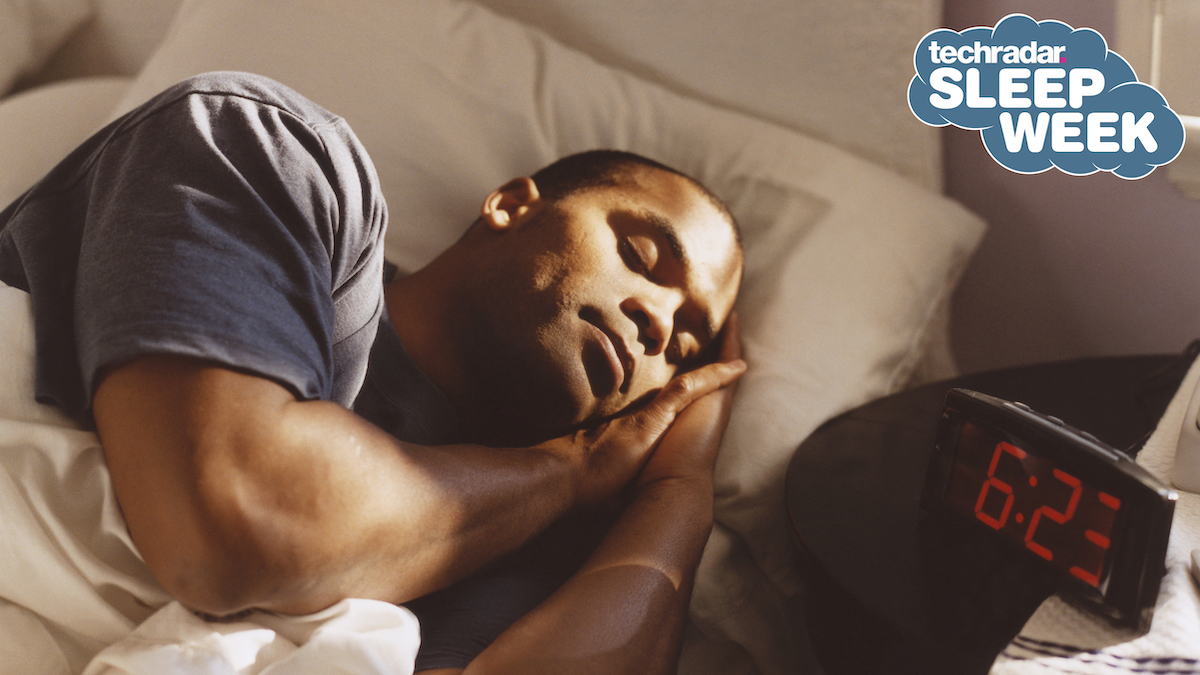
Sign up for breaking news, reviews, opinion, top tech deals, and more.
You are now subscribed
Your newsletter sign-up was successful
We're becoming more aware of the many benefits of good sleep, but there’s also a lot of misinformation flying around. So how do we separate the sleep myths from the sleep facts? We look at the science, of course.
Sleep is so important that Dr Matthew Walker, a renowned neuroscientist and author of the best-selling Why We Sleep, writes that, “the shorter you sleep, the shorter your life span.”
Both Walker and Dr Sophie Bostock, a globally recognised sleep expert known as The Sleep Scientist, say that sleep helps you:
- Learn more effectively
- Make better decisions
- Improves your immune system
- Helps you fight weight gain, depression, stroke and heart disease
So let's dispel some of the biggest and most common sleep myths now, and instead focus on the facts...
Sleep myth 1: Alcohol helps you sleep better
We all know alcohol removes inhibitions and helps us relax, but scientific evidence (Ian Colrain, 2014), shows that alcohol can stop us entering a key, later and deeper phase of sleep known as Rapid Eye Movement Sleep or REM sleep.
There are two phases of sleep: Slow Wave Sleep and REM sleep. REM sleep is essential for information and emotional processing, helping us learn and manage our emotions. Alcohol changes breathing patterns (Walker, 2018), preventing us entering this key phase, which is why you often wake up tired and unrefreshed after a boozy night out, a factor that contributes to the symptoms of a hangover.
If you want to sleep better, avoid the booze and try a herbal tea – chamomile, lavender, hibiscus, rooibos, or even a simple hot water are great options – to help you drift off.
Sign up for breaking news, reviews, opinion, top tech deals, and more.
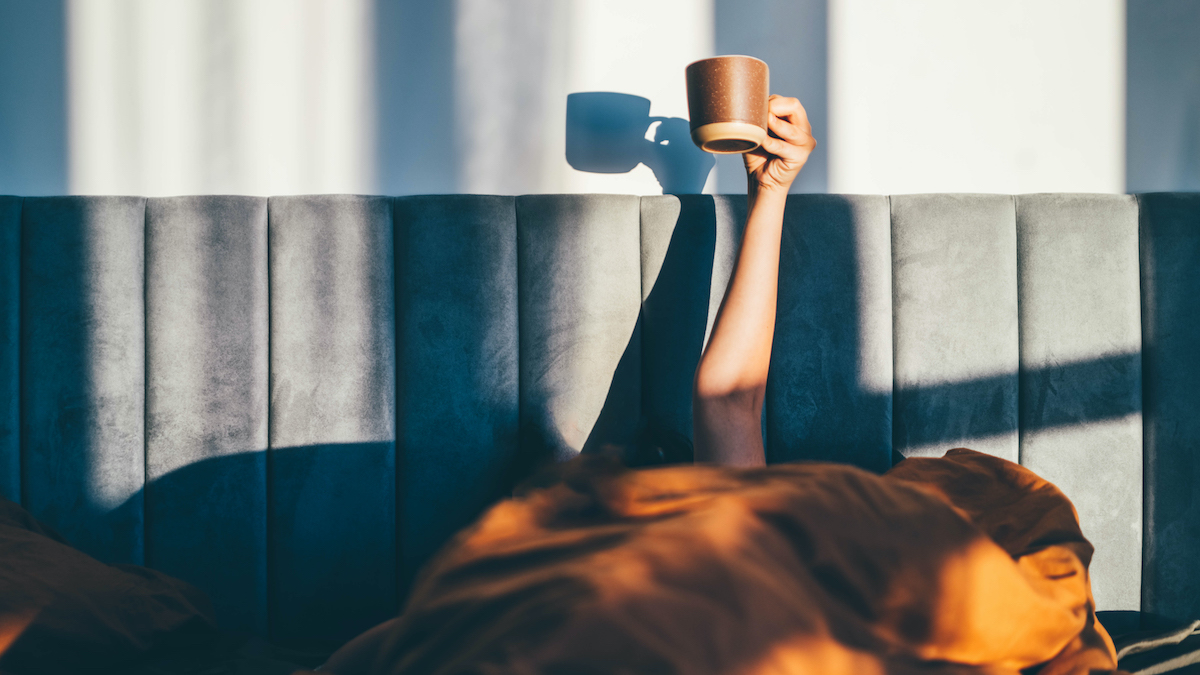
Sleep myth 2: Caffeine won't affect sleep if you have a high tolerance
Caffeine is a drug called a stimulant. It has a half-life (the time it takes for the quantity of a substance to drop by half and be less potent) of around five hours. Caffeine is found in lots of places you wouldn’t imagine: colas, black teas, coffees, energy drinks and chocolate – the darker the chocolate the more caffeine.
Surprisingly, green teas, decaffeinated coffee – it contains less, not zero caffeine – and some drugs, including lots of cold and flu medications, are also caffeine culprits. If you want to sleep, no matter who you are and how large your regular caffeine intake, avoid caffeine a minimum of five hours before bed.
Sleep myth 3: Intense cardio at night helps you nod off
Exercise is fantastic. As the evidence shows – and as all scientific experts emphasise – exercise helps you build up Adenosine, or sleep pressure, during the day. When we exercise, we use up energy from our food and body, making us more fatigued. This helps us sleep. It also releases endorphins, putting you at ease.
However, if you do an intensive workout before sleep, it stresses your body. When we are stressed our brains enter the ‘flight or fight’ mode and give off adrenaline, a hormone and neurotransmitter. This wakes us up and prepares us to fight a threat.
Therefore, working out late at the gym after work may increase sleep deprivation. This also includes dancing and clubbing, where the intense exercise wakes you up.
Sleep myth 4: Sleep routines are only for babies
The route of all good sleep patterns is routine. Evidence (Leah A. Irish, 2015) shows that a regular sleep routine (waking up and going to bed at the same time each day) is essential for sleep hygiene.
Breaking your sleep routine, even for a few days, can disrupt this pattern. And napping or having big lie-ins on the weekends won’t make up for these changes.
So if you have a late night, try not to lie-in the following morning. Instead, stick to your usual wake-up time and daily routine to make it easier to fall quickly back into your routine, and to not lose any essential brain, body and mental health-protecting slumber.
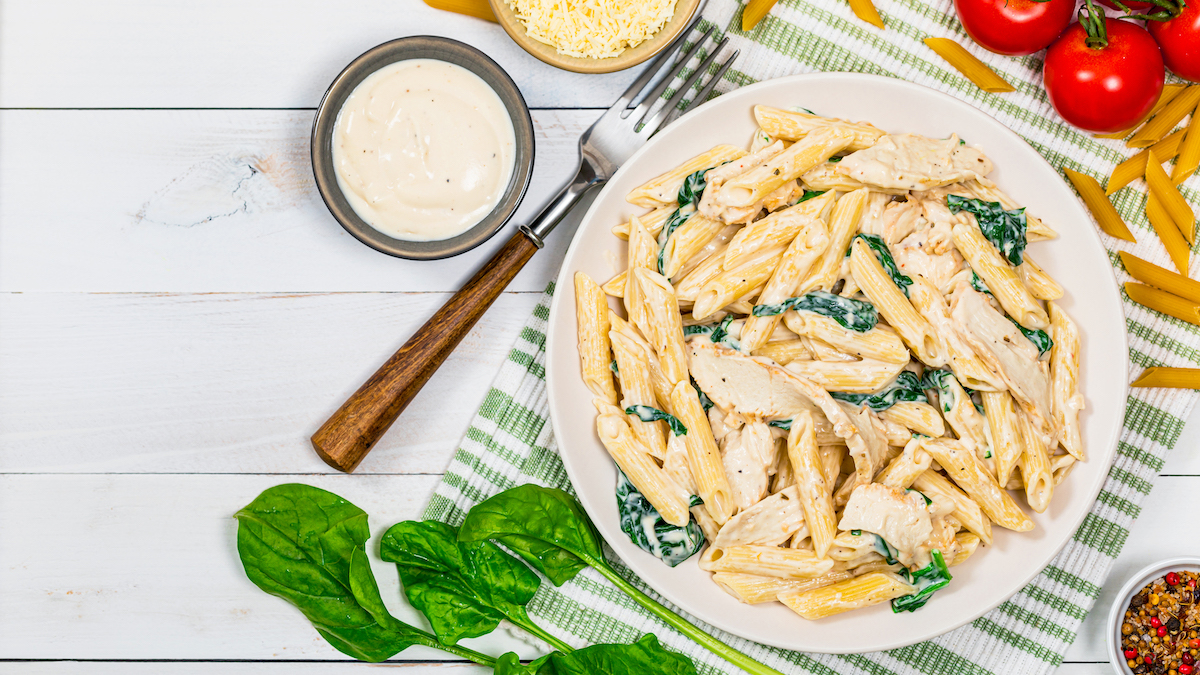
Sleep myth 5: You can eat what you want close to bedtime
There are two types of carbs: simple (sweets, white breads, noodles, rice, pastas, liquors, sodas and fruit sugars), and complex (wholegrains, fibrous veg, brown breads and rye). Evidence shows that we need carbs to help us sleep as inadequate food intake causes the brain to enter flight and fight stress famine mode; it pumps our brains full of adrenaline to make us go out of the cave (like our ancestors) to search for food.
However, it is the quality of the carb that is essential for sleep. Simple carbs are needed for a quick energy source, and as such they give us energy and keep us awake. Complex carbs give us a long term energy supply and provide us with enough energy to help us sleep, but aren’t so fast acting that they keep us awake.
Indigestion also interferes with sleep. So avoid overeating high energy foods at night if you want to sleep well, no matter how tempted you are by that extra piece of cake.
Sleep myth 6: A warm shower will wake you up
Evidence shows that a hot bath or shower before you sleep reduces your core body temperature and helps your muscles relax. This is because our evolutionary ancestors used to sleep in the open sky or caves in the dark of night, where it got colder at night.
Therefore, our brains are hardwired to sleep best in a colder, darker environment. A lower core body temperature helps us thus sleep better.
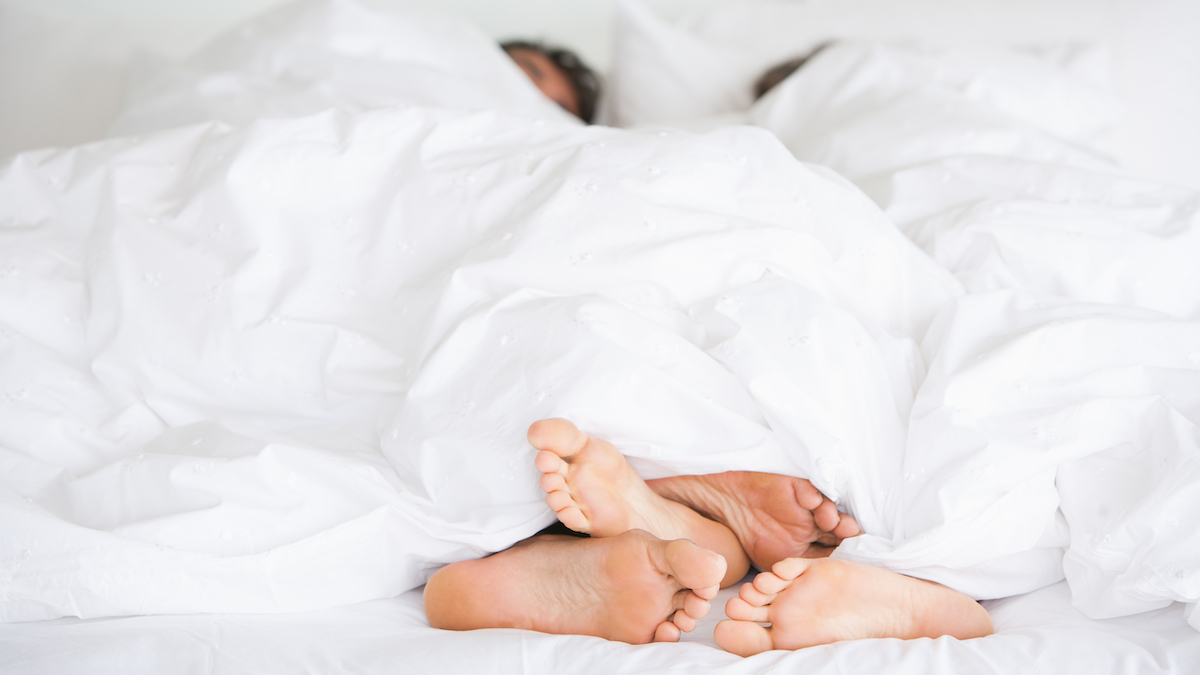
Sleep myth 7: Sex will keep you awake afterwards
Recent research (Lastella, 2019) shows that sex actually promotes sleep. Sex is a form of intense exercise, and so you might assume that late night sex has the same stimulatory effect as exercise. However, sex also produces a brain chemical called oxytocin, which helps reduce cortisol, the brain stress hormone.
Oxytocin is also produced when someone lovingly rubs the tops of your arms, kisses you, shakes your hand, massages you or tells you they love you. In sex, when you orgasm, it makes you feel relaxed and sleepy as it lowers adrenaline and cortisol and helps you feel at ease. Masturbation has the same sleep benefit.
Sleep myth 8: We all need eight hours kip a night
This myth is a controversial one (Chaput, 2018) as how much sleep you need depends on your age, health status and activity level. Children (as they are growing), the elderly (as they have less muscle mass and therefore fatigue quicker), and those with an intensive energy output, need more sleep.
For the rest of us, we are simple cavepeople and as such must follow the “biphasal sleep pattern” of our brains (Walker, 2018) and sleep for eight hours. Sleeping for more than this reduces sleep pressure for the following day, making it harder for us to sleep the next day. Seeping less than this means we are missing key sleep.
We have cycles (circadian rhythms) of a key hormone called melatonin, which helps us nod off to sleep and these cycles are around eight hours in length.
Sleep myth 9: You can nap whenever you want
As Matthew Walker writes in his book, “in locations around the world where people live the longest, naps are common.” So called power naps help to replace lost hours of sleep. What is important is when you choose to nap. Do not nap after 3pm as this can make it harder to fall asleep at night (Mantua, 2018).
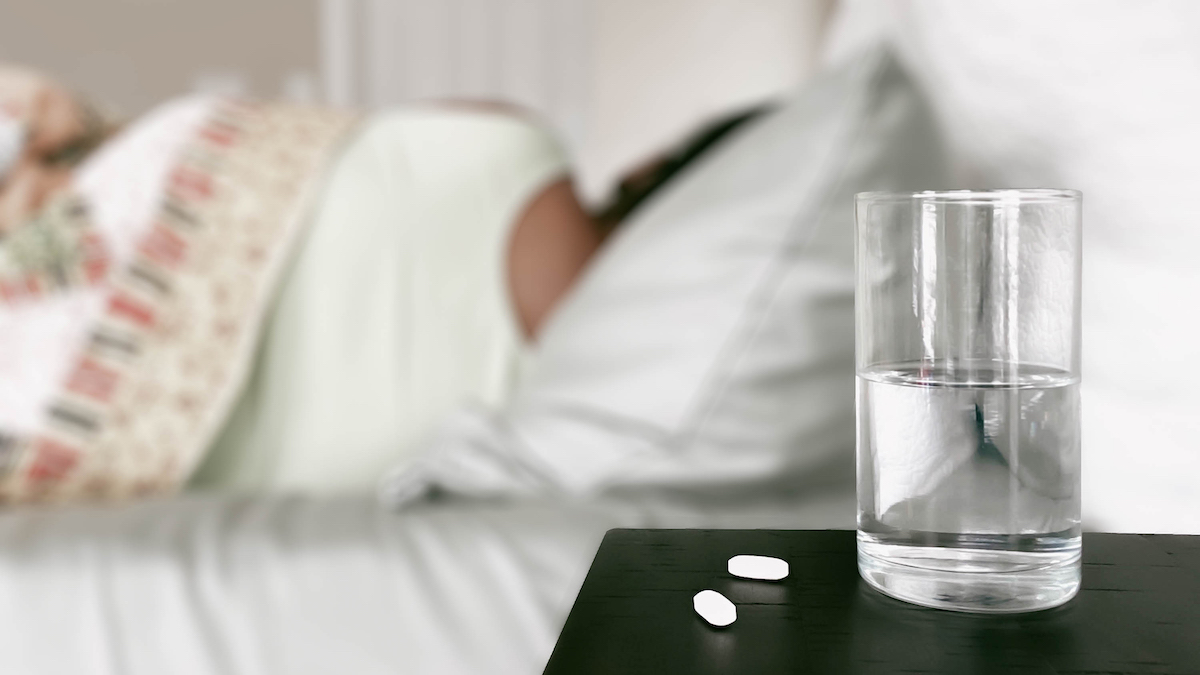
Sleep myth 10: Sleeping pills cure insomnia
Sleeping tablets are a short-term fix to sleeping problems. However, evidence shows that in the long term they actually increase the problem as they cause “rebound insomnia” (Bostock, 2021), where your brain gets used to the drug and therefore when you stop using them, you can’t sleep.
A one off for a long-haul flight to avoid jet-lag is fine, but repeated use of sleeping tablets can worsen insomnia symptoms. Unfortunately, there is no magic pill for sleep deprivation.
References:
- Bostock, S., 2021. The Sleep Scientist
- Chaput, J.-P., 2018. Sleeping hours: what is the ideal number and how does age impact this?. Nature and science of sleep. 10(doi:10.2147/NSS.S163071), pp. 421-430
- Ian Colrain, C. N. F. B., 2014. Alcohol and the Sleeping Brain. Handbook of Clinical Neurology, 125. pp. 415-431. doi:10.1016/B978.
- Lastella, M., 2019. Sex and Sleep: Perceptions of Sex as a Sleep Promoting Behavior in the General Adult Population. Frontiers in Public Health, 7, p. 33. doi: 10.3389/fpubh.2019.00033
- Leah A. Irish, 2015. The Role of Sleep Hygiene in Promoting Public Health: A Review of Empirical Evidence. Sleep Medicine Reviews, 22, pp. 23-26. doi:10.1016/j.smrv.2014.10.001
- Mantua, J., 2018. Exploring the nap paradox: are mid-day sleep bouts a friend or foe?. Sleep Medicine, 37, pp. 88-97. doi: 10.1016/j.sleep.2017.01.019)
- Walker, M., 2018. Why we sleep. Penguin Books.
- Harding, E., 2019. The Temperature Dependence of Sleep. Frontiers in Neuroscience, 13, p. 336. doi: 10.3389/fnins.2019.00336
This article is part of TechRadar's Sleep Week 2021 (running from Sunday 31 October to Sunday 7 November), our in-depth look at sleep and how to snooze better. We've teamed up with experts in their field to bring you sleep techniques and tips to help you drift off easier, and have rounded-up the best sleep kit to transform your bedroom into a den of zen.
Laurentia is a Biomedical Scientist, neuroscience, mental health, and nutrition academic, writer and creative. She is also a marathon runner, yoga teacher, podcaster and poet who is motivated towards promoting happiness and health.